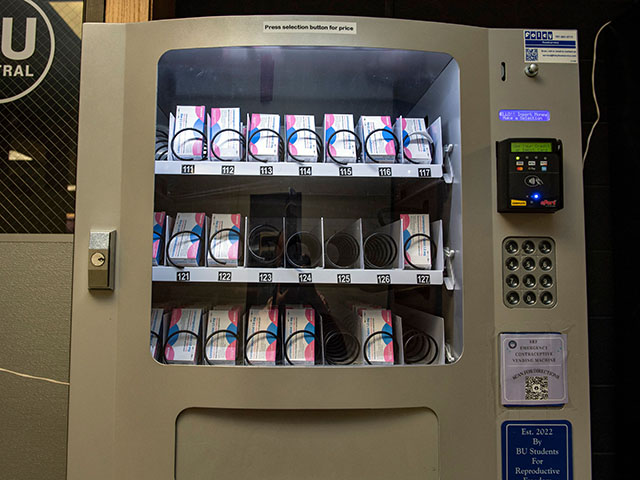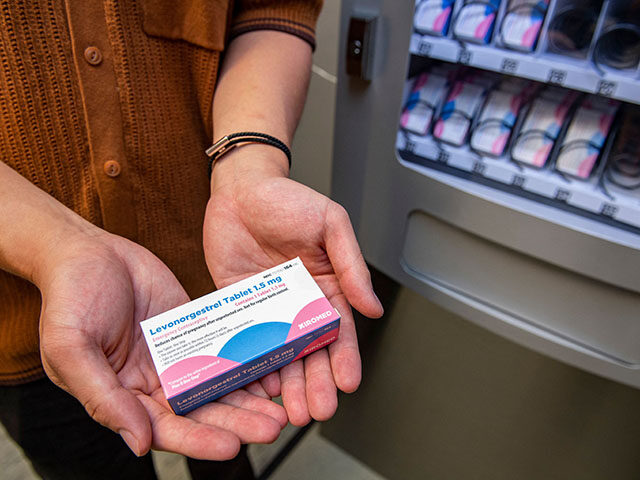At least 39 universities in 17 states have installed morning-after pill vending machines, and at least 20 more are considering them, the Associated Press reported, citing the American Society for Emergency Contraception.
“With some states enacting abortion bans and others enshrining protections and expanding access to birth control, the machines are part of a push on college campuses to ensure emergency contraceptives are cheap, discreet and widely available,” according to the report.

A Plan-B vending machine sits in the basement of the student union building on the Boston University Campus in Boston, Massachusetts on July 26, 2022. (JOSEPH PREZIOSO/AFP via Getty Images)
Washington became the first state this year to set aside funding ($200,000 for $10,000 grants) for public universities to “expand access to emergency contraceptives…through automatic dispensers,” the report states.
“The University of Washington’s machine was installed after a student-led campaign. It offers boxes of generic Plan B for $12.60, about a quarter of what the name-brand versions sell for in stores, and more than 640 have been sold,” according to the report. “The drug is even cheaper in some machines than it is in UW’s, as low as $7 per box. That’s because it is sold at just above wholesale cost, compared with pharmacy retail prices that might go up to $50.”
In New York and Illinois, legislators are working on bills that would require state college campuses to have at least one emergency contraceptive vending machine. Lawmakers in Connecticut also approved a measure this year allowing the morning-after pill and other over-the-counter medications to be sold from vending machines on college campuses and elsewhere.
Zoe Amaris, a University of Washington pharmacy student and board member of UW Pharmacists for Reproductive Education and Sexual Health said “there is a stigma associated with getting access to these medications” that is ameliorated by having vending machines.
“You don’t need to go to a pharmacy. You don’t need to go through your health care provider,” Amaris said.

COMMENTS
Please let us know if you're having issues with commenting.